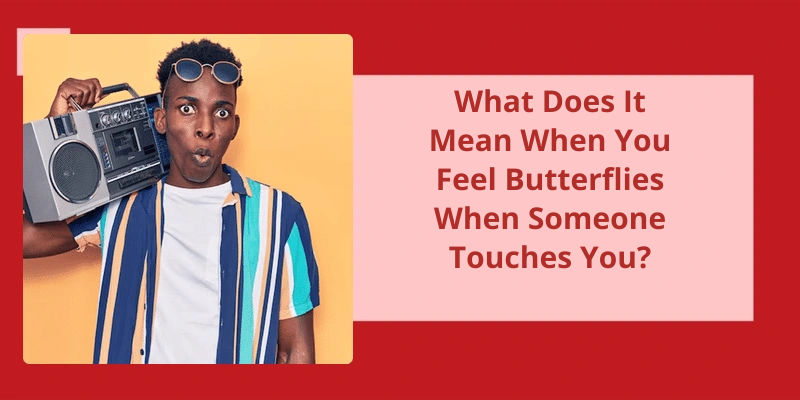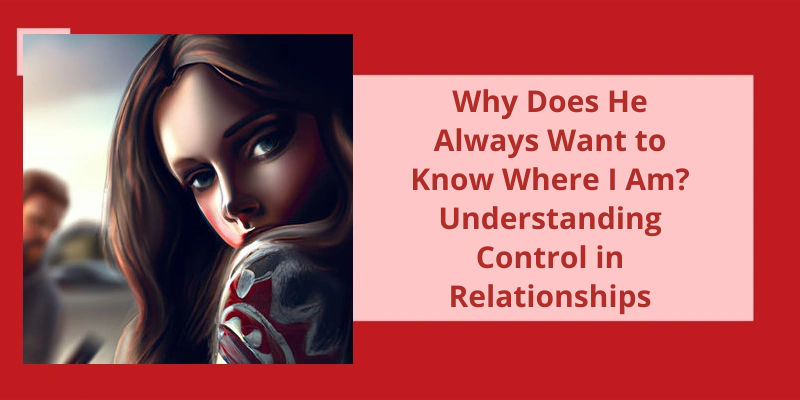Have you ever experienced that fluttery feeling in your stomach when someone touches you? That feeling that’s often described as "butterflies"? It's a sensation that many people have felt at some point in their lives, and it's one that’s deeply tied to the experience of falling in love. The reason behind this feeling is actually quite fascinating – it all comes down to the release of a neurotransmitter called dopamine in the brain. This chemical is responsible for the feelings of pleasure and reward that we experience when we engage in activities that our brains deem pleasurable, and it's the same chemical that floods our brains when we first fall in love. In fact, studies have shown that being in love activates the same regions of the brain as using cocaine – it's a powerful, intense experience that leaves us feeling exhilarated and alive. So the next time you feel those butterflies in your stomach, remember that it's all thanks to the chemistry of love.
What Does He Gives Me Butterflies Mean?
This phrase is often used to describe the initial stages of a romantic relationship, where everything feels new and exciting. The feeling of butterflies is caused by an increase in adrenaline and other hormones that occur when we’re in the presence of someone we’re attracted to. These physical sensations can be heightened even more by the anticipation of seeing or talking to that person.
However, it’s important to note that not everyone experiences butterflies in their stomach when they’re falling in love. Some people may feel more calm or serene, while others may feel a sense of excitement or even nervousness. The intensity of these feelings can also vary depending on how strong the attraction is between two people.
In some cases, people may use the phrase “he gives me butterflies” in a more platonic sense, to describe a friend or family member who makes them feel happy or excited. It’s also worth noting that this phrase is often used in a more lighthearted or playful way, particularly among young people who’re exploring their feelings and emotions for the first time.
While it may not be a scientific term, it’s a relatable way of describing the physical and emotional sensations that occur when we’re falling in love with someone.
While feeling butterflies in your stomach can be a pleasant experience when it comes to love or excitement, it can also be a warning sign when it comes to your overall safety and well-being. This physical sensation may indicate that your nervous system is responding to potential danger or a fearful situation. In this article, we will explore the ways in which feeling butterflies can be a red flag and the steps you can take to protect yourself.
Is Feeling Butterflies a Warning?
While feeling butterflies in your stomach can be a sign of excitement, it can also be a warning sign of an underlying issue. As humans, our nervous system is designed to protect us by alerting us of potential danger or threat. This means that when we feel butterflies, it could be a signal that we’re identifying something that makes us uncomfortable or fearful.
This can be exhausting and can lead to physical and emotional burnout. In some cases, it can also indicate that you’re in an abusive or toxic relationship or environment.
However, it’s essential to note that not all butterflies should be interpreted negatively. It could be that you’re starting a new job or relationship that excites you, or youre about to do something that you’ve always dreamed of doing.
It could be that youre feeling uncomfortable around them due to a lack of trust, or their behavior is triggering your fight or flight response.
How to Manage the Physical and Emotional Effects of Feeling Butterflies
- Take deep breaths to calm yourself down
- Practice relaxation techniques like meditation or yoga
- Write down your thoughts and feelings in a journal
- Talk to a trusted friend or family member
- Engage in physical activity to release endorphins
- Seek professional help from a therapist or counselor
- Avoid caffeine, alcohol, and drugs that can increase anxiety
- Focus on positive self-talk and affirmations
- Find healthy ways to cope with stress, like taking a warm bath or reading a book
Source: What’re the warning signs mistaken for butterflies when you …
However, in today’s social context, we often experience these butterflies in non-threatening situations such as hugs from loved ones. This raises the question, why do we still have this response? In this article, we will explore the science behind the butterflies we feel when we receive a hug and what it means for our relationships.
What Does It Mean When You Get Butterflies When Someone Hugs You?
When we experience these sensations, our body is preparing itself for danger and uncertainty. It’s our natural instinct to protect ourselves from harm, whether it be physical or emotional. So why do we get these feelings when someone hugs us? Perhaps it’s because being vulnerable and open to someone else can be scary. We fear rejection and feel a sense of uncertainty when we let our guard down.
On a physiological level, when we see someone we like or are attracted to, our brain releases a neurotransmitter called dopamine. This is the same neurotransmitter that’s released when we do something pleasurable, like eating our favorite food or listening to our favorite music. Dopamine is responsible for the feeling of pleasure and reward. So, when we receive a hug or a kind gesture from someone we like, our brain releases dopamine, which can create a feeling of euphoria.
It’s also important to note that when we get butterflies in our stomach, it’s not just a mental reaction. Our body physically responds to the stimuli as well. Our heart rate increases, blood rushes to our extremities, and our breathing becomes more shallow. This is all a part of the fight or flight response that our body experiences when it senses danger or uncertainty.
So, what does it mean when we get butterflies? It means that were human. It means that we’ve the ability to feel deeply and experience a range of emotions. It means that were capable of vulnerability and intimacy. While these sensations may feel uncomfortable at times, theyre a sign that were alive and capable of experiencing all that life has to offer.
Getting butterflies when someone hugs you is a natural response to the uncertainty and vulnerability that comes with opening yourself up to someone else. It’s a complex combination of physiological and emotional responses that have been ingrained in us since the beginning of time. While it may be uncomfortable at times, it’s a sign that were capable of deep connection and intimacy. So, the next time you get butterflies, embrace them and enjoy the ride.
While getting butterflies around someone may seem like a good thing, research suggests that it may not be the most reliable indicator of a healthy relationship. In fact, not feeling those fluttery sensations might actually be beneficial for some individuals. Let’s explore why this is the case and what it means for relationship success.
Is Getting Butterflies for Someone a Good Thing?
Butterflies have long been associated with feelings of excitement, anticipation, and nervousness. While they can be a thrilling sensation in the moment, the long-term effects of butterflies in a romantic relationship are often overstated. In fact, some experts argue that the presence of butterflies might actually be a warning sign for deeper relational issues.
In fact, it’s a common misconception that only girls experience the fluttery feeling in their stomachs. Guys are just as likely to feel nervous and excited around someone they’re attracted to. It’s a natural reaction to the thrill of attraction and the uncertainty of whether or not the feeling is mutual. So, let’s dive deeper into the topic of how guys experience these feelings and what they do about it.
Do Guys Get Butterflies When They Like a Girl?
The feeling of butterflies in the stomach is universal and isn’t limited to any gender or age. It’s a physical response that we feel when we’re excited or nervous about someone or something. When a guy likes a girl, he can experience the same physiological response that a girl does. In fact, the intensity of this feeling and the way it affects the body can be stronger than we think.
For many guys, the butterflies in the stomach feeling can be overwhelming. It can cause them to act nervous or awkward around the girl they like, or it can make them feel giddy and lightheaded. Some guys might even get sweaty palms or have trouble concentrating on anything else. These physical symptoms are all a result of the bodys natural response to falling in love or liking someone.
They may worry about how the person they like perceives them, or they may feel unsure of how to act around them. It’s important to remember that these feelings are normal, and that it’s okay to be vulnerable when we like someone. It’s important to be open and honest about our feelings and to communicate with the person we like.
How Can Guys Manage Their Nervousness Around Someone They Like?
- Practice deep breathing exercises to calm yourself down.
- Avoid overthinking and focus on the present moment.
- Remind yourself of your good qualities and worth.
- Engage in activities that make you feel confident and relaxed.
- Talk to a trusted friend or therapist about your feelings.
- Remember that attraction and nervousness are natural and normal experiences.
Conclusion
In conclusion, the feeling of butterflies when someone touches you is a powerful physiological response that stems from the chemical changes occurring in your brain when you experience the rush of falling in love. The release of dopamine triggers a chain reaction within the nervous system, leading to an intense physical reaction that’s akin to being on a high. While the sensation may be fleeting, it’s a clear sign that your mind and body are responding to the person in question in a meaningful and potentially profound way. Understanding the significance of this response can help you to better recognize and appreciate the complex and multifaceted nature of romantic attraction in all it’s forms.






